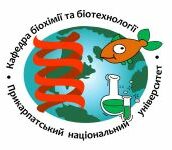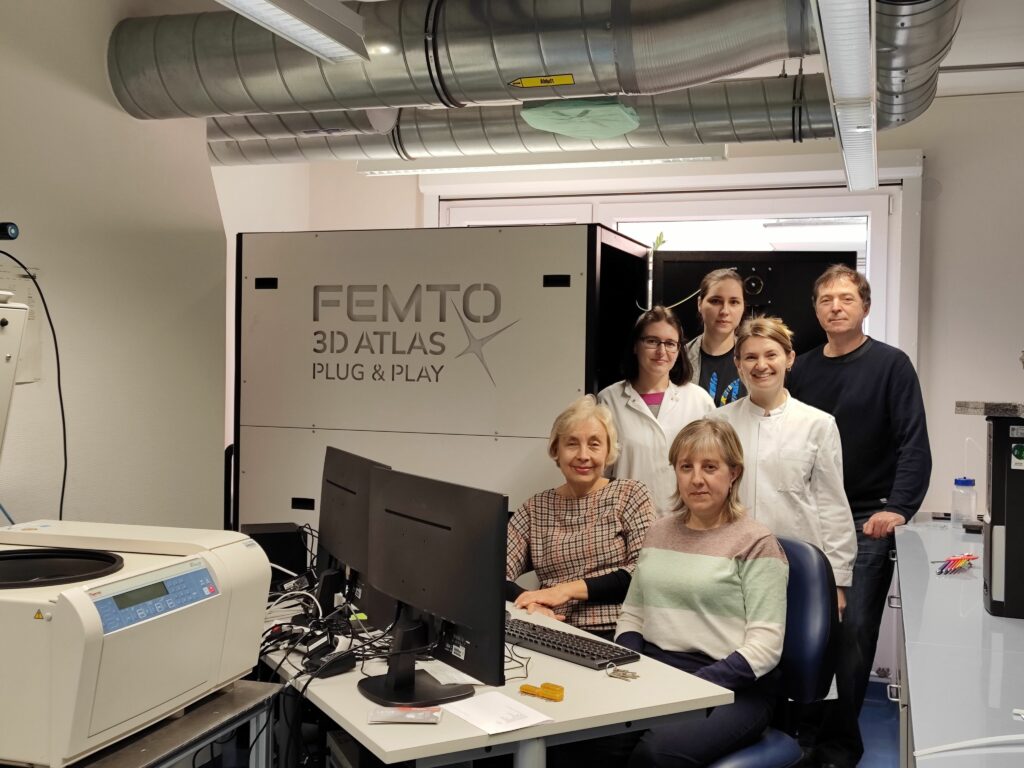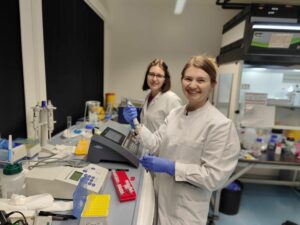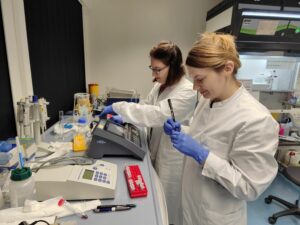During March 11-18, Head of the Department of Biochemistry and Biotechnology, Professor Maria Bayliak visited the Institute of Physiology at the University of Tübingen (Tübingen, Germany). The visit was made as part of the project “Advanced inter-university life science block for Ukrainian biology students”, which is being implemented under the program “Digital Ukraine: Ensuring Academic Success in Times of Crisis (2024)”. This program is initiated and funded by the German Academic Exchange Service (DAAD, Deutscher Akademischer Austauschdienst).
The project leader is the Director of the Institute of Physiology at the University of Tübingen, Professor Olga Garaschuk, and a team of teachers from the Department of Biochemistry and Biotechnology of Precarpathian University provides the organizational component of the project in Ukraine. In general, the project aims to create and deliver online courses for Ukrainian undergraduate and graduate students of biological specialties.
This is the third year of cooperation between the Department of Biochemistry and Biotechnology and the University of Tübingen within the framework of DAAD programs, and this year the team of partners decided to move to a new level and not only to conduct online courses (see more details on the project website – http://lifesciencescourse.org/), but also to start creating their own training videos for students to master the material on their own. These materials are planned to be published on the public platform https://av.tib.eu/publisher/Projekt__Open_Education_Resources_with_Ukraine_. However, the development of such resources requires a clear understanding of the legal regulation of licensing and intellectual property protection in both Germany and Ukraine. Prof. Maria Bayliak visited the University of Tübingen to study aspects of such regulation, consult with our partners from the University of Hannover, who are engaged in supporting the av.tib.eu platform, where the training videos will be posted, and prepare a training seminar for other members of our team. This will allow us to create videos not only in accordance with copyright law, but also to better adapt them to the level of students and course programs at different universities, so that they can be used not only in online courses but also as part of classroom instruction.
Also, as part of the project, on March 11, PhD students of the Department of Biochemistry and Biotechnology Myroslava Vatashchuk and Victoria Hurza began a three-month research internship at the Department of Neurophysiology at the Institute of Physiology (University of Tübingen) at the invitation of the director of the Institute, Professor Olga Garaschuk. During the internship, the PhD students will conduct part of the experimental research related to their dissertation work, namely, to determine the effect of caloric restriction on pro-/antioxidant status and energy metabolism in a mouse model of Alzheimer’s disease.



